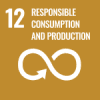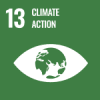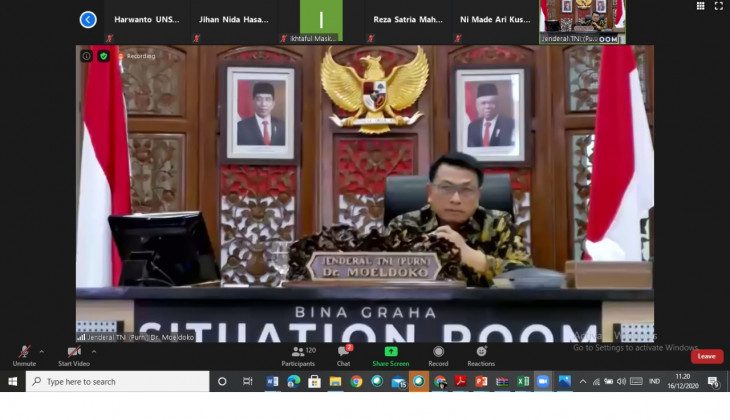Amid the economic recession, the agricultural sector grew 2.19 percent in Q2-2020 and 2.15 percent in Q3-2020. However, the livestock sub-sector experienced a contraction of minus 1.84 percent in Q2-2020 and minus 0.16 percent in Q3- 2020 because the added value was also depressed.
It was stated by the General Chairperson of the Indonesian Farmers Harmony Association (HKTI), General TNI (Purn.). Dr. H. Moeldoko, SIP., who is also the Head of the Presidential Staff Office, at the 2020 National Symposium on Animal Research and Development organized by the Faculty of Animal Science UGM on Wednesday (16/12) online via Zoom.
Moeldoko added that the issue of people’s purchasing power during the Covid-19 pandemic had hit the livestock sub-sector. Even so, livestock business actors have tried hard to innovate in all livestock product value chain processes. This innovation needs to be done because changes in the strategic environment are also moving fast. He said the performance of large cattle was quite good, although not too spectacular.
“The increase in meat production is still positive, although it is quite slow. Beef production in 2020 is around 422,000 tons, while consumption is above 500 thousand tons, so Indonesia must import to meet these needs,” he said.
The Dean of the Faculty of Animal Science UGM, Prof. Dr. Ir. Ali Agus, DAA., DEA., IPU., ASEAN. Eng. said this symposium was the 3rd symposium held to commemorate the 51st Anniversary with the theme “Innovation and Latest Livestock Development Strategies to Support Sustainable Agricultural Development”. He said innovation is the heart of business and industrial progress, regardless of its type, including livestock. According to Ali, livestock food production is not sufficiently supplied from domestic production (many of them are still imported); thus, innovation is required to increase domestic production in line with the increasing demand for livestock food.
“It also provides opportunities for the younger generation to enter the livestock industry, which is still very prospective,” Ali explained.
Meanwhile, the Head of the BNI Yogyakarta Regional Office, Moh. Hisham, on that occasion, conveyed the strategy and the importance of institutional support, especially from the aspect of capital. Ir. Nafiatul Umami, S.Pt., M.P., Ph.D., IPM. ASEAN. Eng., UGM Animal Science lecturer, presented the development of forage innovation for animal feed. In addition, there were also speakers from Wageningen University, the Netherlands, namely Dr. Simon Oosting, who discussed issues such as global warming and integrated livestock systems in support of sustainable agriculture.



